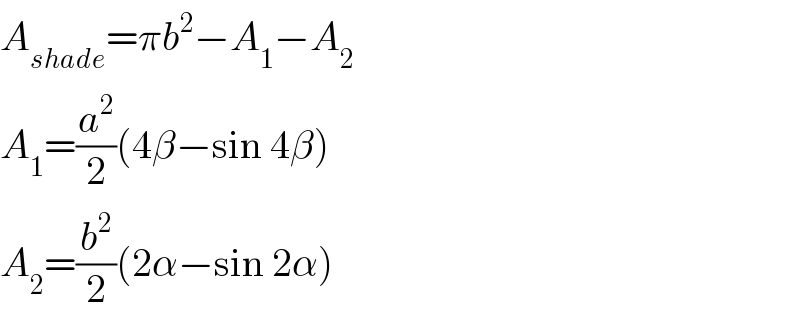
Question and Answers Forum
Question Number 61424 by Tawa1 last updated on 02/Jun/19

Answered by mr W last updated on 02/Jun/19

Commented by mr W last updated on 02/Jun/19
![cos α=sin β=(b/(2a)) ⇒α=cos^(−1) (b/(2a)) ⇒β=sin^(−1) (b/(2a)) A_(shade) =πb^2 −(b^2 /2)(2α−sin 2α)−(a^2 /2)(4β−sin 4β) A_(shade) =πb^2 −(b^2 /2)[2 cos^(−1) (b/(2a))−sin (2 cos^(−1) (b/(2a)))]−(a^2 /2)[4 sin^(−1) (b/(2a))−sin (4 sin^(−1) (b/(2a)))]](Q61431.png)
Commented by Tawa1 last updated on 02/Jun/19

Commented by alphaprime last updated on 02/Jun/19
Amazing
Commented by mr W last updated on 02/Jun/19

Commented by ajfour last updated on 02/Jun/19

Commented by mr W last updated on 02/Jun/19

Commented by mr W last updated on 02/Jun/19

Commented by mr W last updated on 02/Jun/19

Commented by mr W last updated on 02/Jun/19

Commented by ajfour last updated on 02/Jun/19

Commented by Tawa1 last updated on 02/Jun/19

Commented by ajfour last updated on 02/Jun/19

